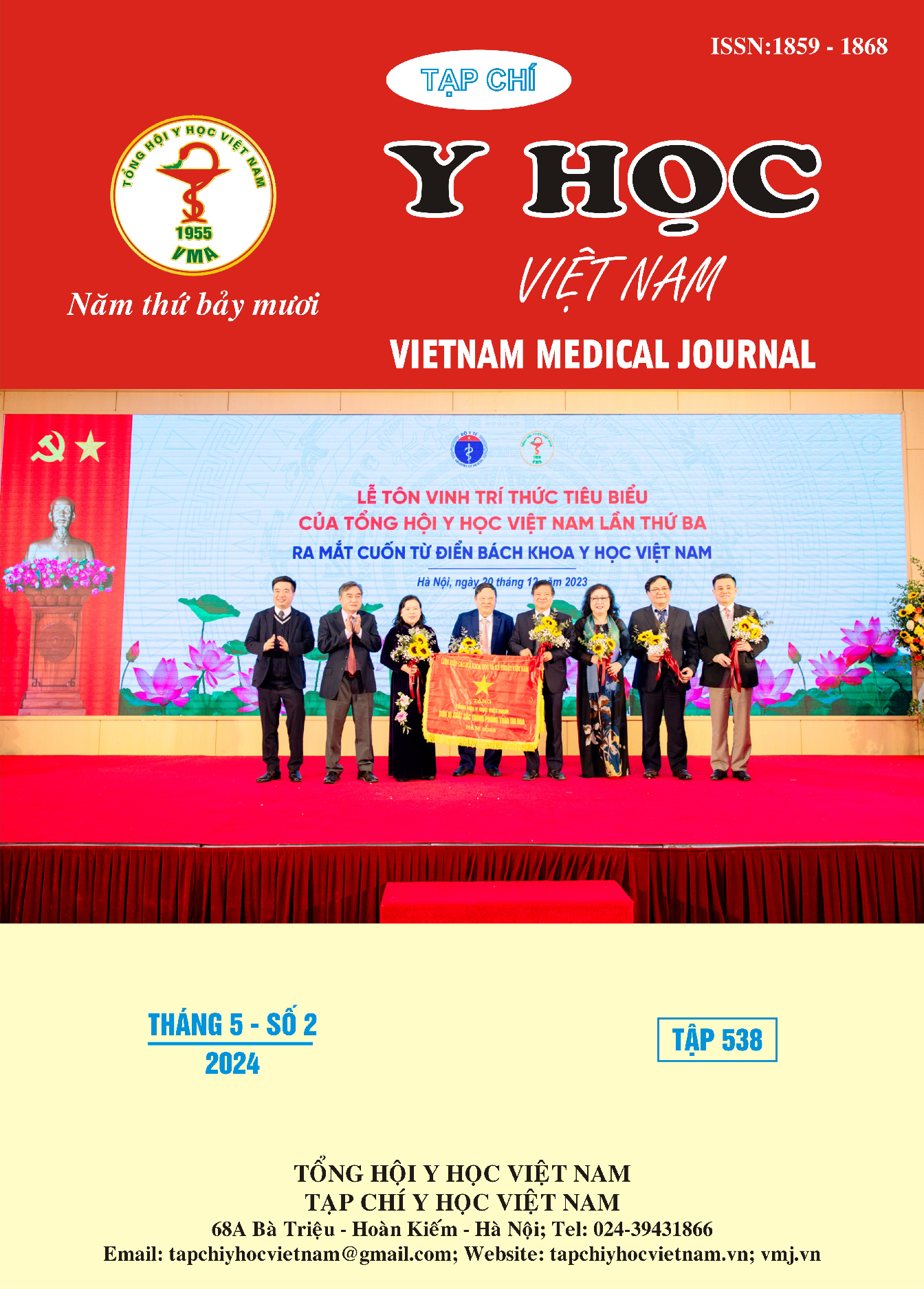PREVALENCE SURVEYS OF DIABETES RELATED-DISTRESS AND RELATED FACTORS AMONG TYPE 2 DIABETIC ELDERLY PATIENTS
Main Article Content
Abstract
Objectives: To assess the incidence of moderate - severe stress and related factors of diabetes related – distress in elderly patients with type 2 diabetes. Methods: This cross-sectional study was conducted on 161 outpatients aged ≥ 60 years with type 2 diabetes mellitus for 3 months or more at the Endocrinology Clinic of Thong Nhat Hospital in Ho Chi Minh City from October 2023 to the end of November 2023. Subjects were given results from interviews using the Diabetes Distress Scale (DDS-17) and related factors. Results: Older adults with moderate - severe diabetes stress were less likely to have highest levels of education below high school (35% vs 5%, p <0.001), less than 5 years of illness were more likely to experience severe stress (31.8% vs 13.8%, p<0.001) and >10 years were at risk of moderate stress (73.2% vs 45.5%, p<0.001). In addition, patients taking oral medications, poor medication adherence and poor glycemic control increased their likelihood of stress (p<0.05). On the geriatric front, stress was less common in patients who were not impaired (79% vs 17%, p<0.001), took no more than five types of medication per day, and had no or mild geriatric depression (p<0.05). In multivariate logistic regression model, stress-related factors in elderly patients with type 2 diabetes mellitus are hypertension (OR 0.16; 95% CI 0.03 – 0.99; p <0.05), diabetic retinopathy (OR 269.74; 95% CI 7.71 – 9431.64; p <0.05), treatment modalities (OR 4.60; 95% CI 1.46 – 14.89; p <0.05), medication adherence (OR 3.63; 95% CI 1.30 – 10.16; p <0.05), the degree of glycemic control (OR 1.28; 95% CI 0.34 – 4.79; p <0.05) and geriatric depression (OR 16.76; 95% CI 0.00 – 1544.85; p <0.05). Conclusions: Duration of diabetes, method of treatment, diabetes-related comorbidities, medication adherence and glycemic control, multi-drugs, and geriatric depression are factors that increase stress risk in older adults. Diabetes – related distress is an issue that needs to be screened and evaluated in the health care of the elderly and is also a strategic goal in protecting mental health as recommendation of ADA 20241.
Article Details
Keywords
căng thẳng liên quan đái tháo đường, DDS-17, người cao tuổi
References
2. Young-Hyman D, de Groot M, Hill-Briggs F, Gonzalez JS, Hood K, Peyrot M. Psychosocial Care for People With Diabetes: A Position Statement of the American Diabetes Association. Diabetes Care. 2016;39(12):2126-2140. doi:10.2337/dc16-2053
3. Jia Yii L, Vanoh D. Predictors Affecting Diabetes Related Distress among Diabetes Patients. Malaysian Journal of Medical Sciences. 2022; 29(2): 94-101. doi:10.21315/ mjms2022.29.2.9
4. Pandit AU, Bailey SC, Curtis LM, et al. Disease-related distress, self-care and clinical outcomes among low-income patients with diabetes. J Epidemiol Community Health (1978). 2014; 68(6): 557-564. doi:10.1136/jech-2013-203063
5. Safieddine B, Sperlich S, Epping J, Lange K, Geyer S. Development of comorbidities in type 2 diabetes between 2005 and 2017 using German claims data. Sci Rep. 2021;11(1):11149. doi: 10.1038/s41598-021-90611-x
6. Huynh G, Tran TT, Do THT, et al. Diabetes-Related Distress Among People with Type 2 Diabetes in Ho Chi Minh City, Vietnam: Prevalence and Associated Factors. Diabetes Metab Syndr Obes. 2021; Volume 14:683-690. doi:10.2147/ DMSO.S297315
7. Đề C, Tế Y, Cộng C, et al. Stress và các yếu tố liên quan trên bệnh nhân đái tháo đường type 2 tại Bệnh viện Gò Vấp Thành phố Hồ Chí MinhS. City Journal of Medicine *. 2021;25(2):22-28.
8. Lê TH, Ngô Thị P, Phạm TH. Khảo sát tỷ lệ lo âu và một số yếu tố liên quan ở người bệnh đái tháo đường typ 2 tại Bệnh viện Trung ương Quân đội 108. VietNam Military Medical Unisversity. 2023; 48(7):24-32. doi:10.56535/jmpm.v48i7.387


